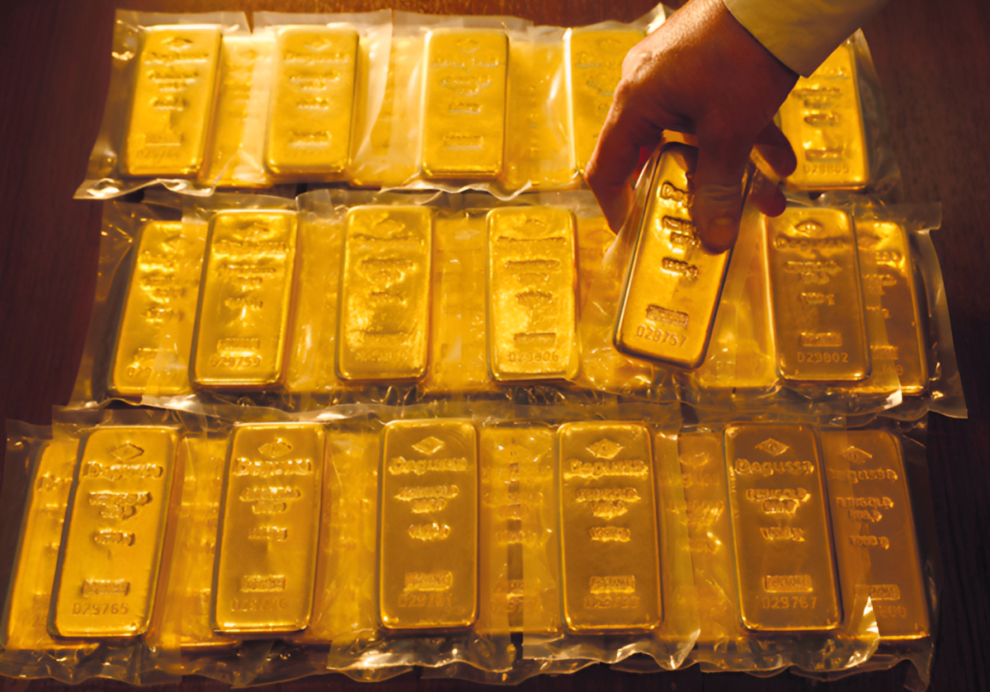An Irish far-right party is facing a potential investigation into its funding after the theft of €400,000 in gold bars from its Dublin vault.
Justin Barrett, the leader of the National Party, said last week that the bars were taken from a safe at his party’s storage area in Dublin.
Police have since recovered the missing gold bars, Irish media have reported.
But the incident has raised questions about how the National Party is funded.
The row erupted after Irish media reported that Mr Barrett made a complaint to Gardaí (Irish police) last week, saying “a considerable quantity in gold” was stolen from a vault in the capital Dublin.
The bars were estimated to be worth around €400,000 (£340,000; $430,000), according to local reports.
Posting on social media, Mr Barrett explained that the party held the main part of its reserves in gold in case of a collapse in the value of the euro and other currencies.
Irish media later reported that Gardaí had recovered the gold and were seeking to establish its ownership.
In a statement to the BBC, Gardaí said they would not comment on named individuals, but confirmed they were “carrying out enquiries into an allegation of theft from a premises” in the Dublin 4 area of the capital.
There has been fresh scrutiny of the National Party’s finances since the revelations. It has been accused of not filing its accounts as required under electoral law.
Cllr Emma Blain – a member of Ireland’s governing centre-right Fine Gael party – told the BBC that election officials had agreed to look into her complaint that the party has not submitted accounts for several years.
In documents seen by the BBC, Ireland’s Standards in Public Office (Sipo) regulator said Cllr Blain’s complaints “will be followed up to ensure proper compliance with the requirements of the Electoral Acts”.
“All matters relating to possible noncompliance with the requirements of the Electoral Acts that are brought to the attention of the Commission, are followed up and enquiries made as appropriate,” the body said.
Sipo refused to comment on Cllr Blain’s complaint, telling the BBC: “Due to the nature of Sipo’s role as an impartial oversight body, and in order to be fair to all parties involved, we would not be able to provide any comment regarding individual, or party, cases of compliance.”
The National Party itself is yet to reply to a BBC request for comment.
The party has little more than a minor presence in the Irish political scene. Standing on a Eurosceptic, anti-immigrant platform, it has no elected representatives and has never received more than 2.4% of the vote in any national poll it has contested.
But Cllr Blain told the BBC that she was relieved that the regulator was taking her concerns seriously “in the current climate where disinformation is a real threat to democracy”.
Meanwhile, Mr Barrett’s position in the party is reported to have been precarious for some time, and his decision to report the missing gold to police seems to have precipitated a move against him.
A post on Monday on X (formerly known as Twitter) on the party’s official account said Mr Barrett had been removed from leadership of the party in mid-July, and was replaced by his deputy, James Reynolds.
The statement accused him of a “hands-off leadership style” which it said had “allowed the party to go to seed”. A rival page seemingly run by Mr Barrett – and on which he has previously made statements – appears to have been suspended.
But in a later post on the Telegram app, Mr Barrett denied he had been removed and insisted that he remained in control of the National Party.
He described the party’s statement as “farcical”, adding that he “was and am the president of the National Party in law”.
Source: BBC News











